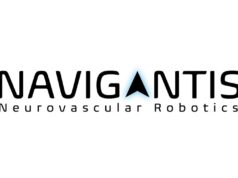Results presented at the 14th annual North American Neuromodulation Society meeting show that 70% of patients report overall pain relief.
St. Jude Medical announced two-year results in a post-market clinical study evaluating neurostimulation (spinal cord stimulation) for the management of chronic low back pain. Presented at the 14th annual North American Neuromodulation Society (NANS) meeting in Las Vegas, the study found that 70% of neurostimulation patients reported overall pain relief of 50% or better at their final two-year visit. Additionally, 88% of these patients reported that their quality of life was improved or greatly improved.
“This study is the largest neurostimulation study conducted to date and is specifically designed to gather more information about the effectiveness of spinal cord stimulation for low back pain,” said Eugene Mironer, presenter of the results and managing partner of the Carolina Center for Advanced Management of Pain in Spartanburg, USA. “Our findings at the two-year mark indicate that the therapy is sustainable long-term. In addition to reporting an improvement in their quality of life, 89% of patients were satisfied or very satisfied with their results.”
Neurostimulation therapy is a proven method of managing chronic pain. It uses an implantable medical device to deliver mild electrical pulses to the epidural space to mask or interrupt pain signals as they travel to the brain. St. Jude Medical is sponsoring this research to continue to build on the published data supporting the long-term sustainability of the therapy.
“There is a growing body of evidence that confirms the effectiveness of neurostimulation for the management of chronic pain, especially for those patients who have tried multiple therapies only to continue to suffer with pain,” said Chris Chavez, president of the St. Jude Medical Neuromodulation Division. “Over the course of the past decade, physician training, technology improvement and patient selection criteria have advanced greatly. Our study validates the significant impact of these advances in further improving the effectiveness of neurostimulation therapy.”
The large scale, prospective study was conducted at 29 medical centres across the US. Preliminary analysis presented at the North American Neuromodulation Society annualmeeting includes data from 130 patients that have met the two-year follow-up point, since not all patients have reached the two-year evaluation mark. The study design utilises the Eon rechargeable spinal cord stimulator and dual or tripolar arrays of percutaneous leads or surgical leads.
Pain affects millions of people worldwide. In the US, more than 76.5 million people are categorised as suffering from pain by the American Pain Foundation. Estimates by the National Institutes of Health place the costs for lost work time and healthcare expenses at approximately $100 billion every year.












